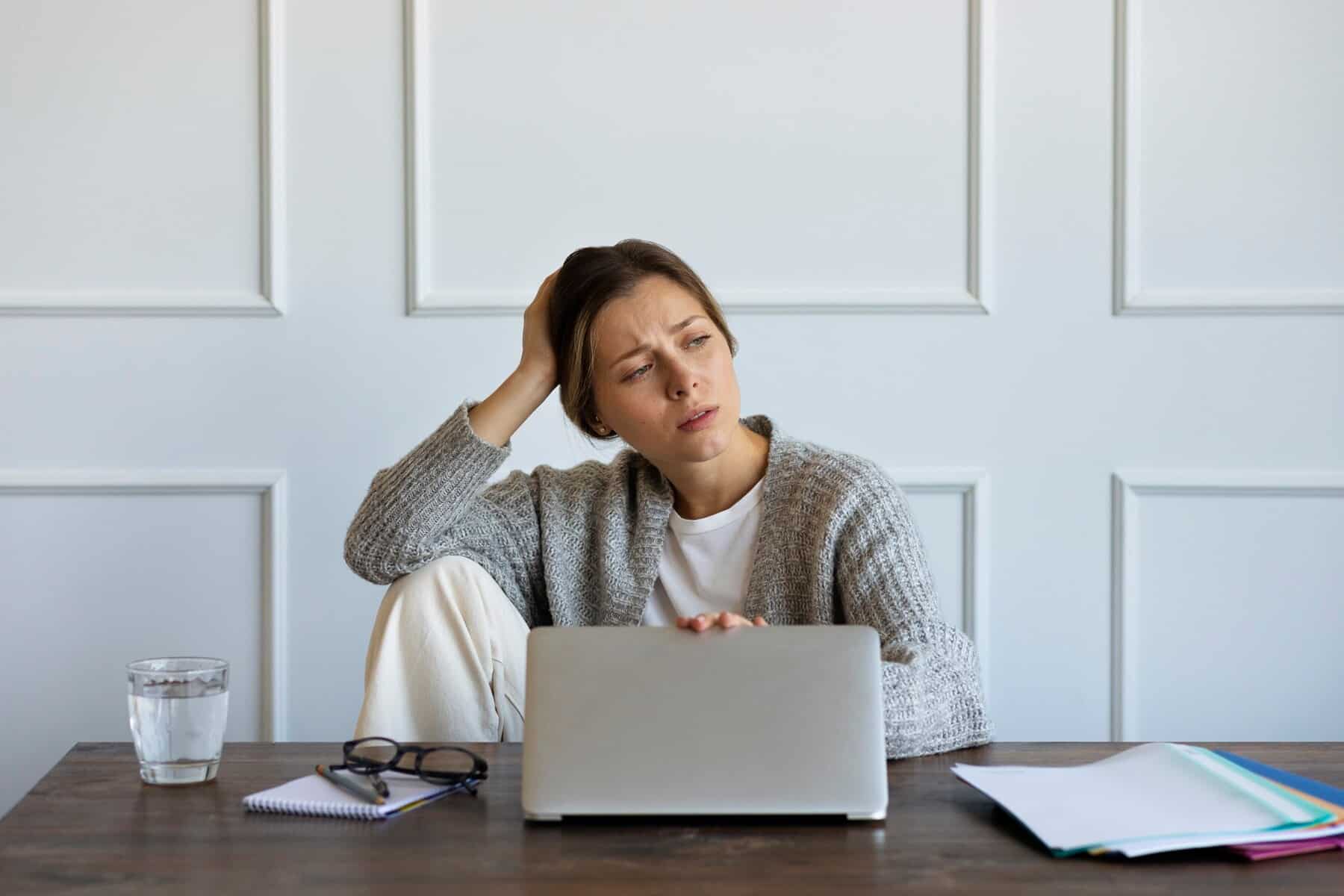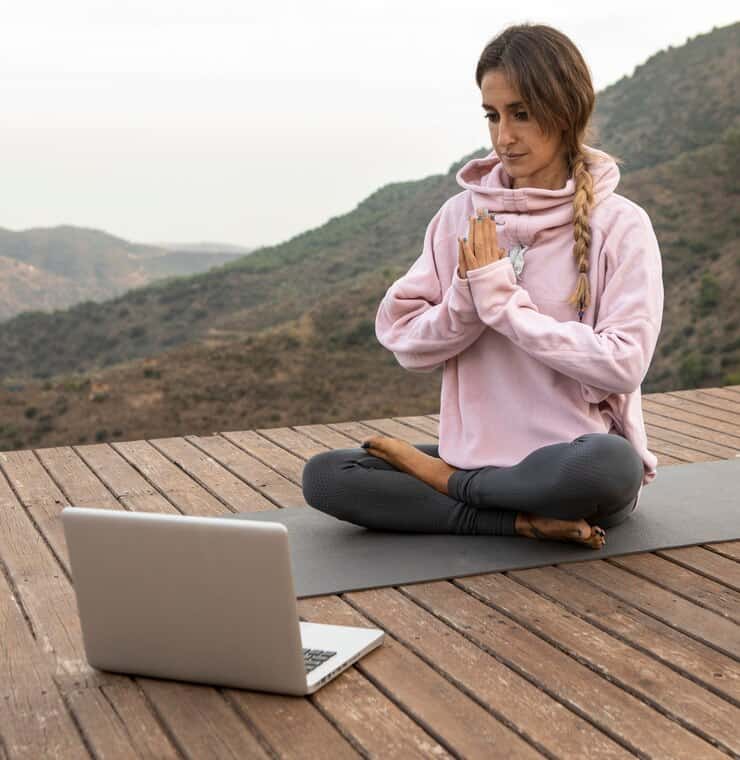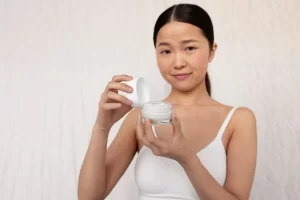
Natural Anxiety Management Tips | No Meds Needed
Do you ever find yourself overwhelmed by anxious thoughts and feelings?
The tightness in your chest, the racing heartbeat, and the constant worry that fills your mind?
I’ve been there, too.
Anxiety can be a crippling condition that affects every aspect of your life.
It can make simple tasks feel impossible, and it can leave you feeling completely drained and defeated.
But what if I told you that there are ways to manage anxiety without relying on medication?
Yes, you heard that right.
There are natural methods and techniques that can help alleviate your anxiety symptoms and bring you a sense of peace and calm.
In this article, we will explore effective strategies for managing anxiety without the use of medication. You don’t have to rely solely on pills to find relief.
Key Takeaways:
- Manage anxiety without relying on medication.
- Explore natural anxiety management techniques.
- Promote overall well-being through holistic approaches.
- Find alternative options for anxiety relief.
- Consult with a healthcare professional for personalized guidance.
Holistic Self-Help Techniques for Anxiety Relief
Anxiety can be overwhelming, affecting both our mental and physical well-being.
Fortunately, there are holistic self-help techniques that can provide relief and promote a sense of calm and balance.
In this section, we will explore various anxiety coping strategies to help you manage your symptoms and achieve holistic anxiety relief.
Mindfulness and Meditation
One effective technique for anxiety relief is practicing mindfulness and meditation.
These practices involve focusing your attention on the present moment, without judgment or attachment to thoughts or emotions.
By bringing awareness to your breath, sensations, and thoughts, mindfulness and meditation can help reduce anxiety and promote a sense of inner peace.
Try this: Find a quiet and comfortable space, close your eyes, and take a few deep breaths.
Allow yourself to fully immerse in the present moment, paying attention to the sensations of your breath entering and leaving your body.
If thoughts arise, acknowledge them and gently bring your focus back to your breath.
Deep Breathing Exercises
Deep breathing exercises are another powerful tool for anxiety relief.
When we experience anxiety, our breath tends to become shallow and rapid, further exacerbating our symptoms.
By consciously practicing deep, controlled breathing, we can activate the body’s relaxation response and reduce anxiety.
Take a slow, deep breath in through your nose, feeling your abdomen rise as you fill your lungs with air.
Exhale slowly through your mouth, feeling your abdomen lower.
Repeat this deep breathing exercise for several minutes, focusing on the sensation of your breath.
Progressive Muscle Relaxation
Progressive muscle relaxation is a technique that involves tensing and then releasing different muscle groups to promote relaxation and reduce muscle tension.
By sequentially contracting and relaxing specific muscle groups, you can release physical tension and experience a deep sense of relaxation.
Try this: Start by sitting or lying down in a comfortable position.
Begin with your toes, tightly squeezing them for a few seconds, then release and let them relax completely.
Move up to your calves, thighs, abdomen, chest, arms, and finally your facial muscles, tensing and releasing each group.
Take your time and focus on the sensation of relaxation as you release the tension in each muscle group.
By incorporating these holistic self-help techniques into your daily routine, you can effectively manage anxiety and cultivate a greater sense of well-being.
Embrace the power of mindfulness and meditation, practice deep breathing exercises, and explore the benefits of progressive muscle relaxation.
Remember, self-care is key when it comes to taking control of your anxiety and achieving holistic anxiety relief.
Natural Lifestyle Changes for Stress Management
In addition to holistic self-help techniques, making natural lifestyle changes can greatly contribute to stress management and reduce anxiety.
By incorporating healthy habits into your daily routine, you can support your mental well-being and promote a sense of calm and balance.
The Importance of Exercise
Regular exercise is not only beneficial for your physical health but also plays a crucial role in managing stress and anxiety.
Engaging in physical activity releases endorphins, which are natural mood boosters.
Whether you prefer brisk walks, yoga, or strength training, find an exercise routine that suits your interests and abilities.
Aim for at least 30 minutes of moderate-intensity exercise most days of the week.
Healthy Eating Habits
Your diet can have a significant impact on your mood and overall well-being.
Incorporate nutrient-rich foods into your meals to fuel your body and mind.
Avoid excessive consumption of processed or sugary foods, which can lead to energy crashes and mood swings.
Instead, focus on whole foods such as fruits, vegetables, lean proteins, and complex carbohydrates.
Additionally, stay hydrated by drinking plenty of water throughout the day.
Sufficient Sleep
Adequate sleep is essential for managing stress and reducing anxiety.
Lack of sleep can exacerbate feelings of anxiousness and tension.
Establish a consistent sleep schedule and create a relaxing bedtime routine to signal to your body that it’s time to unwind.
Avoid electronic devices, caffeine, and stimulating activities close to bedtime. Aim for 7-9 hours of quality sleep each night.
Incorporating Relaxation Activities
Engaging in relaxation activities can help calm the mind and reduce stress.
Consider incorporating practices such as yoga, meditation, or aromatherapy into your daily routine.
These activities promote relaxation, mindfulness, and a sense of inner peace.
Find a quiet space and dedicate time each day to focus on your mental and emotional well-being.
By implementing these natural lifestyle changes, you can effectively manage stress and reduce anxiety without relying on medications.
Consistency and commitment are key in developing healthy habits that support your mental well-being.
Conclusion: Natural Anxiety Management Tips | No Meds Needed
In conclusion, exploring alternative anxiety therapy options can be a highly effective approach for managing anxiety without medication.
By implementing natural anxiety management techniques and making lifestyle changes, individuals can develop a personalized approach to finding relief from anxiety symptoms.
Throughout this article, we have discussed the importance of holistic self-help techniques for anxiety relief, such as mindfulness and meditation practices, deep breathing exercises, and progressive muscle relaxation.
These techniques can help individuals cultivate a sense of calm and promote overall well-being.
Additionally, we have highlighted the significance of natural lifestyle changes in stress management.
Engaging in regular exercise, maintaining a healthy diet, and getting enough sleep are essential for supporting mental well-being.
Incorporating relaxation activities like yoga and aromatherapy into daily routines can also contribute to anxiety reduction.
While alternative anxiety therapy can be highly beneficial, it is crucial to remember that seeking guidance from a healthcare professional or therapist is important for personalized support and guidance.
They can help individuals develop an appropriate plan for managing anxiety and offer additional resources to aid in their journey towards long-term well-being.
CLICK HERE TO LEARN MORE:
FAQ
Q: How can I manage anxiety without medication?
A: There are several natural anxiety management techniques you can try. These include practicing mindfulness and meditation, engaging in deep breathing exercises, using progressive muscle relaxation techniques, and incorporating relaxation activities such as yoga and aromatherapy into your daily routine.
Q: What are some self-help techniques for anxiety relief?
A: Holistic self-help techniques can be effective in relieving anxiety. Some strategies you can try include practicing mindfulness, engaging in deep breathing exercises, using progressive muscle relaxation techniques, and incorporating relaxation activities such as yoga and aromatherapy into your daily routine.
Q: How can lifestyle changes help with stress management?
A: Making natural lifestyle changes can support stress management and help reduce anxiety. Regular exercise, healthy eating habits, sufficient sleep, and engaging in relaxation activities such as yoga and aromatherapy can all contribute to a sense of wellbeing and decrease anxiety levels.
Q: What are some alternative anxiety therapy options?
A: Alternative anxiety therapy options include practicing mindfulness and meditation techniques, engaging in deep breathing exercises, using progressive muscle relaxation techniques, and incorporating relaxation activities such as yoga and aromatherapy into your daily routine. It’s important to consult with a healthcare professional or therapist for personalized guidance and support.
Related read: Understanding Stress’s Impact on Aging Process







